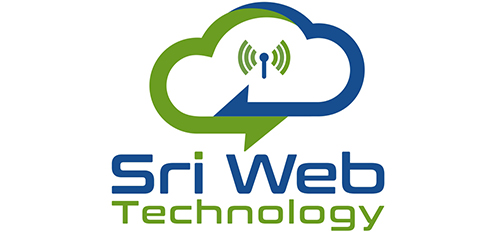In an increasingly digital world, ensuring the security of your website is paramount. Cyber threats are evolving, and businesses must stay ahead of these dangers to protect their websites and customer data. As we move into 2024, it’s crucial to understand the latest security threats and implement best practices to safeguard your online presence. Here, we’ll discuss current security threats, offer tips on securing your website and customer data, and highlight the security features offered by Sri Web Technology.
Latest Security Threats in Web Hosting
1. Ransomware Attacks
Ransomware continues to be a significant threat in 2024. Cybercriminals use this malware to encrypt your website data and demand a ransom for its release. These attacks can disrupt business operations and lead to substantial financial losses.
2. Phishing and Social Engineering
Phishing attacks are becoming more sophisticated, targeting both businesses and their customers. Cybercriminals trick individuals into providing sensitive information through deceptive emails, websites, or messages. Social engineering tactics manipulate people into divulging confidential information or performing actions that compromise security.
3. DDoS Attacks
Distributed Denial of Service (DDoS) attacks flood a website with excessive traffic, causing it to slow down or crash. These attacks can be launched by malicious actors to disrupt your online services and negatively impact user experience.
4. SQL Injection
SQL injection attacks involve inserting malicious SQL code into a website’s database query. This allows attackers to gain unauthorized access to sensitive information, modify or delete data, and compromise the integrity of your website.
5. Zero-Day Vulnerabilities
Zero-day vulnerabilities are security flaws in software that are unknown to the vendor. Cybercriminals exploit these vulnerabilities before they are patched, making them particularly dangerous. Staying updated on the latest security patches and updates is crucial to mitigating these risks.
Tips on Securing Websites and Customer Data
1. Implement Strong Password Policies
Enforce strong password policies for both your users and administrative accounts. Encourage the use of complex passwords that include a combination of letters, numbers, and special characters. Regularly update passwords and consider using multi-factor authentication (MFA) for an added layer of security.
2. Regularly Update Software and Plugins
Keep all software, plugins, and content management systems (CMS) up to date. Security patches and updates are released to fix vulnerabilities, and staying current helps protect your website from known threats.
3. Use Secure Hosting Services
Choose a reputable web hosting provider that prioritizes security. Look for features like SSL certificates, firewalls, DDoS protection, and regular security audits. Sri Web Technology, for instance, offers robust security features to safeguard your website.
4. Encrypt Data
Use encryption to protect sensitive data both in transit and at rest. SSL/TLS certificates ensure that data transferred between your website and users is encrypted, preventing interception by malicious actors.
5. Backup Your Data Regularly
Regular backups are essential for recovering from security breaches or data loss. Ensure that backups are stored securely and are easily accessible in case of an emergency. Automated backup solutions can simplify this process and ensure data is consistently backed up.
6. Monitor for Suspicious Activity
Implement monitoring tools to detect suspicious activity on your website. Intrusion detection systems (IDS) and web application firewalls (WAF) can help identify and block malicious traffic. Regularly review logs and analytics to spot any unusual patterns or behaviors.
7. Educate Your Team and Users
Cybersecurity awareness is crucial for preventing attacks. Educate your team and users about common threats, such as phishing and social engineering. Conduct regular training sessions to keep everyone informed about best practices for staying secure online.
Highlighting Sri Web Technology’s Security Features
Sri Web Technology is committed to providing top-notch security features to protect your website and customer data. Here are some of the key security offerings:
1. Comprehensive DDoS Protection
Sri Web Technology provides advanced DDoS protection to safeguard your website from traffic overload attacks. This ensures that your site remains operational and accessible even during an attack.
2. Robust Firewall Protection
The platform offers a robust firewall to block unauthorized access and prevent malicious traffic from reaching your website. This adds a crucial layer of defense against potential threats.
3. Regular Security Audits
Sri Web Technology conducts regular security audits to identify and address vulnerabilities. This proactive approach helps ensure that your website remains secure and compliant with the latest security standards.
4. SSL Certificates
SSL certificates are included with all hosting plans, ensuring that data transmitted between your website and users is encrypted. This not only enhances security but also boosts user trust and search engine rankings.
5. Automated Backups
The platform provides automated backup solutions, ensuring that your data is consistently backed up and can be restored quickly in the event of a breach or data loss.
6. 24/7 Security Monitoring
Sri Web Technology offers round-the-clock security monitoring to detect and respond to threats in real time. This continuous vigilance helps protect your website from emerging threats and ensures swift incident response.
Conclusion
Maximizing website security in 2024 requires staying informed about the latest threats and implementing robust security measures. By following best practices, such as enforcing strong passwords, keeping software updated, and choosing a secure hosting provider like Sri Web Technology, you can significantly enhance your website’s security and protect your valuable data. Prioritize security to build trust with your users and ensure the continuity of your online presence in an increasingly digital world.
